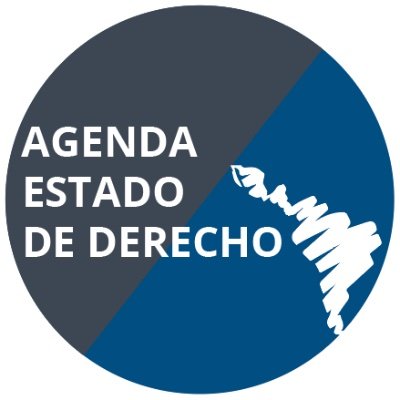Nine Months Into Chaos
Ecuador’s Challenges After Declaring a Non-International Armed Conflict
The Republic of Ecuador is nine months away from the chaotic events of 9 January 2024: attacks and the seizure of a live newscast by members of organized crime, the consequent declaration of an “internal armed conflict” by the Presidency and the designation of 22 organized crime groups as “military targets”. This social and political process which has transformed the country is not yet fully understood and merits reflection on several key aspects of this ongoing dynamic.
Lack of a strategic security plan
So far, no civil society actor has access to the “Phoenix Plan”, a national government initiative promoted as a comprehensive response to the security crisis. In reality, it is not a clear instrument but a series of reactive actions. For a public policy to be effective, it needs clearly defined objectives, actions and outcomes that allow for adequate accountability.
Especially in the critical areas of public order and citizen security, the lack of such mechanisms distorts expectations – what the government intends to do and what the citizens expect from it. This phenomenon of lack of dialogue is reflected in a 21-point drop in government approval between January and June 2024. This mistake must be corrected quickly with next year’s elections in mind. Any security policy must be tied to national planning, the protection of sectors and, above all, the protection of fundamental rights.
Dialogue of the deaf between State authorities
A second issue is the lack of dialogue between branches of government and democratically elected leaders regarding the approach to citizen security. The continuous clashes between the executive, the legislative and regional government authorities generate a sense of isolation and lack of cooperation in an area that requires coordinated efforts between all levels of government. Crucially, this increases feelings of helplessness among the population, since its authorities engage in unproductive discussions rather than working together.
Criminological dynamics
A third aspect concerns criminal policy. Although there has been a notable decrease in the number of homicides, other criminal activities have increased – with kidnappings and extortion quintupling in cities such as Guayaquil. Organized crime groups should be understood as “illegal economies” that use force to obtain benefits from activities not necessarily linked to narcotics.
Failing to address these dynamics comprehensively, and focusing only on the control of economic value chains, risks overlooking other criminal dynamics. Such an approach limits the focus and ignores the risk of economic and social fragmentation. Although the statistics (number of police officers or percentage of homicides) may appear to show progress, they need to be analyzed comprehensively with other factors to avoid economic and social fragmentation.
Communication and a sense of security
The fourth element concerns communication: There has been a “gamification” of security policies. The state has employed media strategies akin to marketing strategies, from the creation of logos for media criminal cases, as if it were the sale of a product, to theatrical stagings of prison constructions or military deployments.
This false sense of triumphalism must be dismantled. Instead, the rule of law must be protected through institutional communication focused on generating conditions to eliminate the cultural and organizational ties of criminal gangs, which, for example, maintain a constant recruitment of children.
The role of the judicial system
At this point in the conflict, it cannot be denied that organized crime groups have found allies within certain sectors and actors of the judicial system. Corrupt, criminal infiltration generates effects on illegal governance (such as the speed of processes, the outcome of sentences and movement in and out of social rehabilitation centers). They are easily replaceable in conflicts over control of territories and illegal production routes, either through political maneuvering or, unfortunately, by lethal force.
Judicial reform is urgently needed. The Inter-American Commission on Human Rights has already outlined a coherent roadmap: protect at-risk judicial personnel, avoid pressure and aggression, and ensure that institutions tasked with protection are properly funded and supported. In addition, it is crucial to conduct thorough investigations into attacks on these judicial actors in corruption cases, with perpetrators held accountable. To strengthen the judiciary’s independence, objective and predictable criteria for selection, discipline and sanction processes must be established. Otherwise, impunity will continue to prevail, and silence will remain the main facilitator of rights violation.
Responding to the population’s needs
Ecuadorians increasingly feel that the State no longer responds to their needs and that criminal structures have taken its place. Statistics show poor budget execution, which has led to rising social unrest due to unmet needs.
No population will endure restrictive social measures needed to combat organized crime if the State does not provide concurrent support through social policies that bolster the security system. Failure to reduce social inequalities and resolve conflicts over access to services may turn the current crisis into an intergenerational problem that will worsen over time.
Notwithstanding states of emergency or expert analyses – citizen violence and organized crime are persistent and well-known realities which have not been addressed. The balance of these past nine months is bittersweet: Although the State and citizens tried to improve security conditions, organized crime has responded with greater violence and has exploited the weaknesses of the State, such as corruption and ineffective policies.
To combat this chaos, it is essential to strengthen democracy, increase citizen participation and consolidate the rule of law with clear, transparent rules, enforced by competent authorities within a framework of human rights, due process and effective political management. This is the true path to building a resilient democracy.

This article first appeared in Latin American Spanish on Agenda Estado de Derecho. The article is part of a collaboration between AED and Verfassungsblog.



